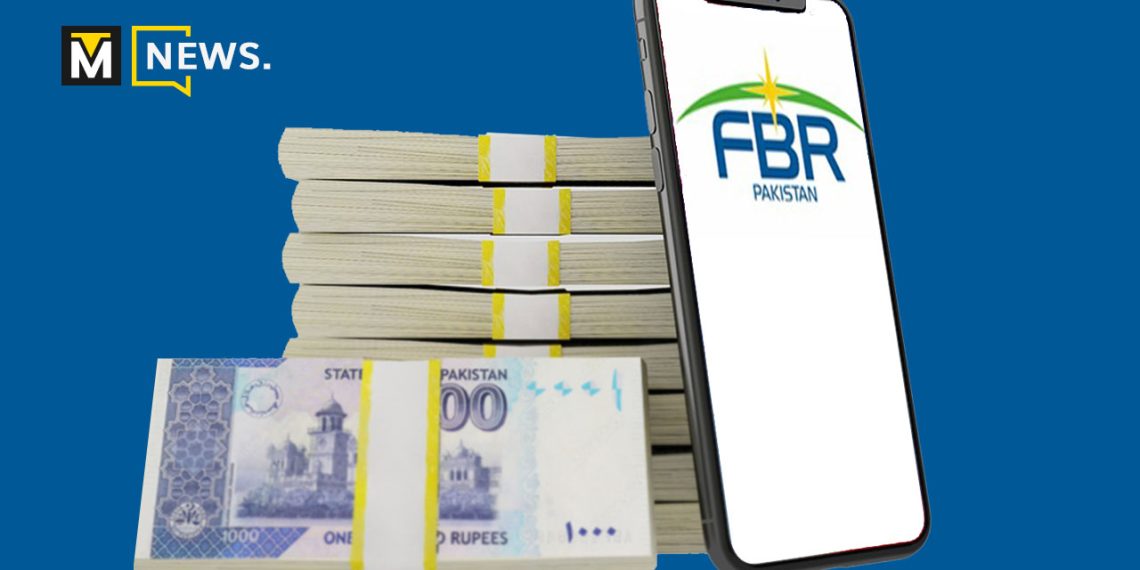In the latest move for tax collection efforts, the Federal Board of Revenue (FBR) has made substantial changes to tax rates, particularly focusing on non-active taxpayers. These modifications, introduced under the Finance Act 2023, are set to impact various financial transactions across the board.
Withholding Tax Hikes In The Finance Act 2023 In Pakistan
The newly implemented withholding tax rates are set to influence various transactions, including cash withdrawals, motor vehicle purchases, immovable property transfers, and payments to non-residents. Here’s an in-depth analysis of the tax implications for different taxpayer categories.
Where taxable income does not exceed Rs. 600,000/- the tax will be 0% but if it exceeding Rs. 600,000/- then gains to 7.5% and more as per FBR’s table of income tax.
Let’s break down the key changes:
1- No Tax Deduction for Cash Withdrawals below Rs50,000
Under the revised tax structure, there will be no tax deduction for cash withdrawals below Rs50,000 per day. This change aims to provide relief to small cash withdrawals and encourage financial flexibility for citizens. More over, as per the Finance Act 2023:
(23) after omitted section 231AA, the following new section shall be inserted, namely: –
“231AB. Advance tax on cash withdrawal. — (1) Every banking company shall deduct advance adjustable tax at the rate of 0.6% of the cash withdrawal from a person whose name is not appearing in the active taxpayers’ list on the sum total of the payments for cash withdrawal in a day, exceeding fifty thousand rupees.
Explanation. – For removal of doubt, it is clarified that the said fifty thousand rupees shall be aggregate cash withdrawals in a single day.”;
2- Higher Tax Rates for Non-Active Taxpayers
For those individuals who are not active taxpayers, the FBR has imposed higher tax rates on specific transactions. Notably, for cash withdrawals above Rs50,000, varying amounts of tax will be deducted based on the withdrawn amount. This measure is designed to encourage more people to become active taxpayers and contribute to the tax system.
3- Increased Tax Rates on Motor Vehicles
The tax rates for motor vehicles with engine capacities of 2001cc and above have been set at 6%, 8%, and 10% based on the vehicle’s value. However, for non-active taxpayers, a 200% increase, making motor vehicle purchases more expensive for this category.
4- Hiked Withholding Tax on Immovable Property Transactions
The sale and purchase of immovable property will now attract a higher withholding tax rate of 3%, up from the previous 2%. Both the seller and the purchaser will be subject to this increased tax percentage when transferring property.
5- Tightening the Outflow of Foreign Exchange Reserves
To curb unnecessary outflow of foreign exchange reserves, the FBR has raised the withholding tax rates on payment to non-residents through debit/credit cards. A 5% withholding tax for Active Taxpayers, while on the other hand a hefty 10% deduction for the non-active taxpayers.
6- Advance Tax on Domestic Aide Visas
In an effort to streamline tax collection, the Finance Act 2023 introduces a new section that mandates a Rs200,000 advance tax for any Pakistan authority issuing or renewing a domestic aide visa for foreign domestic workers. This advance tax can be adjusted against the tax liability assessed for a tax year.
Conclusion About The Finance Act 2023 In Pakistan
The FBR’s decision to revamp tax rates is aimed at creating a more robust tax system while incentivizing active taxpayer participation. These changes will undoubtedly have a significant impact on the financial landscape and warrant careful consideration for all taxpayers.
Image Sources: Pixabay | Pexels | Free Images or Source is Linked – Let us know if you have concerns to be addressed.
Your comments and views in the comment box below will be highly appreciated and helpful to all others. Stay connected with Mubashir Talks. Cheers!
Was this helpful? Rate this post below.
Your post rank


















![[getpaidstock.com] 64ec49e8b971a](https://mubashirtalks.com/wp-content/uploads/2023/08/getpaidstock.com-64ec49e8b971a-120x86.jpg)


Discussion about this post